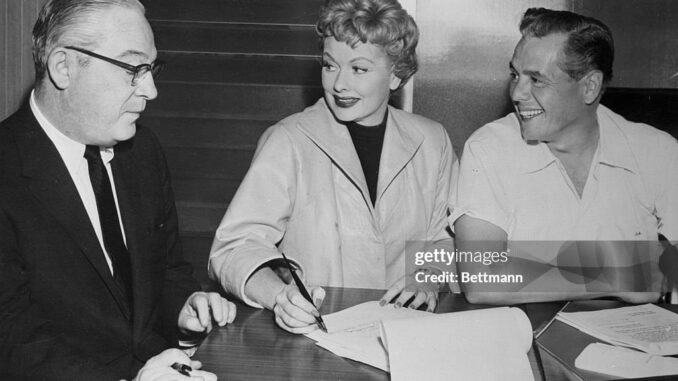
How much juice did Lucille Ball have in the late 1960s? While many of her contemporaries struggled to remain relevant as America seemed on the brink of a cultural and political revolution (alas, only the former came to pass), the old-school Ball was still one of television’s most reliable entertainers. “I Love Lucy,” the paradigm-setting sitcom she created with her husband Desi Arnaz, was a syndication powerhouse. Five years after ending the series, she shook off the Broadway failure of 1960’s “Wildcat” and scored another sitcom hit with “The Lucy Show.” At the end of the series’ sixth season, it was the second highest-rated show on television, but when Ball sold Desilu Productions to Gulf+Western in 1967, she decided to pull the plug.
Why? Because she didn’t want to star in a show owned by someone else. So when “The Lucy Show” aired its final episode on March 11, 1968, Ball turned around and created “Here’s Lucy,” which premiered six months later and instantly became a top-ten ratings sensation.
But while Ball didn’t miss a beat, she did take a risk. In keeping with the family vibe of her biggest hit, “I Love Lucy,” she decided to cast her real-life children as her character’s kids. For her son, Desi Arnaz Jr., this wasn’t a huge deal. He’d been in a semi-successful pop band called Dino, Desi & Billy since age 12, and was thus a seasoned live performer. Lucie Arnaz, however, was unproven. Though she’d had some walk-on roles on “The Lucy Show,” she’d never been anything close to a series regular. Could she hang with her mom, brother, and veteran actors like Gale Gordon and Mary Jane Croft?
No one was more concerned about her casting than Lucie, so she struck a most unusual deal with her mother.
Lucie was no nepo-baby
Lucie’s headstrong mother was adamant that she take the gig, so, rather than fight what almost certainly would’ve been a losing battle, Lucie devised a “pull-the-plug” deal that stipulated Ball would fire her daughter from the show if the untested performer started getting bad reviews. Amazingly, her mom agreed.
In a recent interview with the New York Post’s Page Six, Lucie revealed that she was desperate to avoid charges of nepotism. As she told the gossip column:
“I debated about whether or not I should actually do that. Because people will say ‘Oh, she just got that job because she’s her daughter,’ and they would be right.”
Lucie needn’t have worried. She turned out to be a fine comedic actor, though she didn’t really find her niche in show business until she got into musical theater, where she earned raves for her turns in the Jones Beach Theatre revival of “Annie Get Your Gun” and the 1986 international company tour of the Tommy Tune-directed “My One and Only.” She also briefly found big-screen fame/infamy as Neil Diamond’s love interest in the pop star’s remake of “The Jazz Singer.” The film might’ve been a critically reviled flop, but she still earned a Golden Globe nomination for Best Supporting Actress.
Lucie has seemingly stepped away from acting of late, but she did score legit awards success in 2021 as the executive producer of the Academy Award-nominated “Being the Ricardos.” Not a bad run for someone who once gave her mother the option to fire her from a hit television series.
